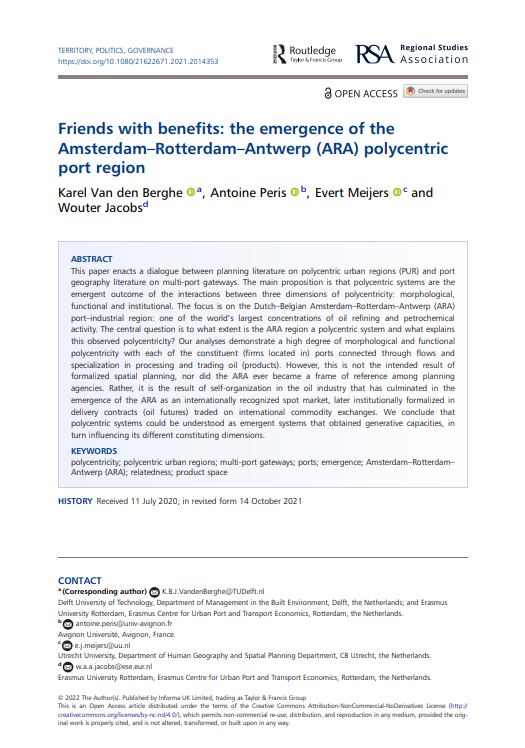Abstract
This paper enacts a dialogue between planning literature on polycentric urban regions (PUR) and port geography literature on multi-port gateways. The main proposition is that polycentric systems are the emergent outcome of the interactions between three dimensions of polycentricity: morphological, functional and institutional. The focus is on the Dutch–Belgian Amsterdam–Rotterdam–Antwerp (ARA) port–industrial region: one of the world’s largest concentrations of oil refining and petrochemical activity. The central question is to what extent is the ARA region a polycentric system and what explains this observed polycentricity? The analyses demonstrate a high degree of morphological and functional polycentricity with each of the constituent (firms located in) ports connected through flows and specialization in processing and trading oil (products). However, this is not the intended result of formalized spatial planning, nor did the ARA ever became a frame of reference among planning agencies. Rather, it is the result of self-organization in the oil industry that has culminated in the emergence of the ARA as an internationally recognized spot market, later institutionally formalized in delivery contracts (oil futures) traded on international commodity exchanges. As a conclusion: polycentric systems could be understood as emergent systems that obtained generative capacities, in turn influencing its different constituting dimensions.
